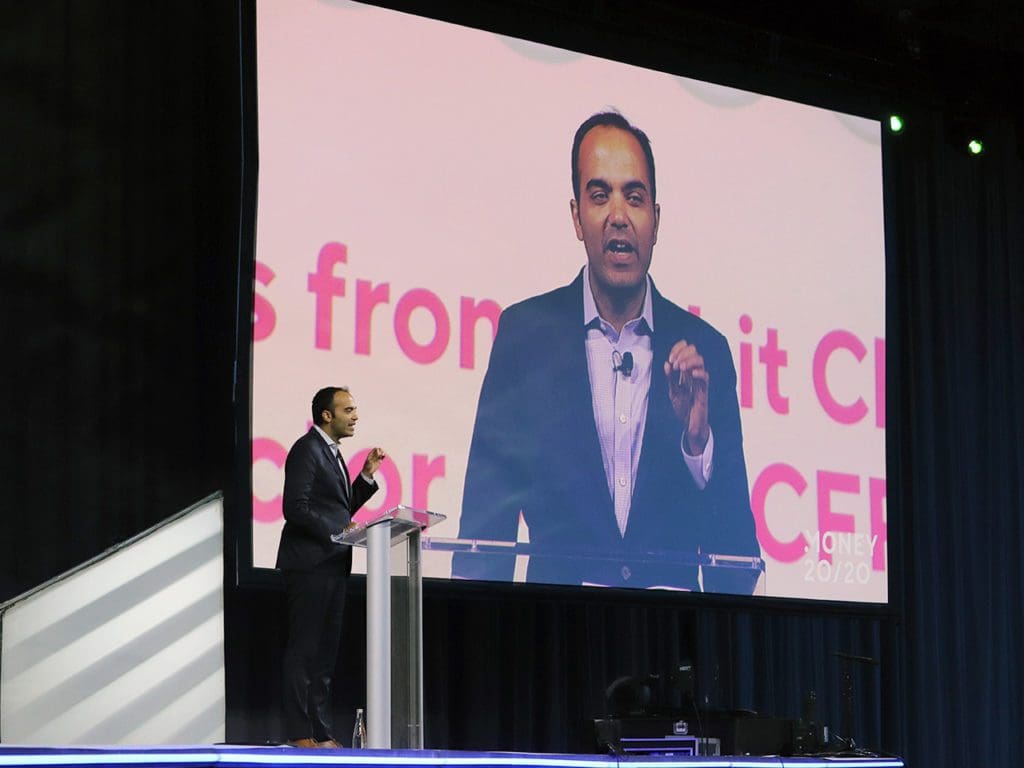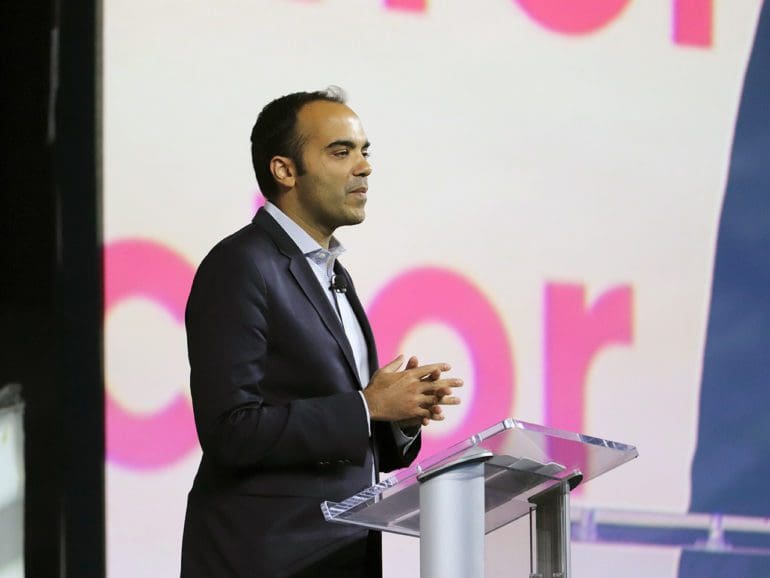LAS VEGAS, Nev. — Consumer Finance Protection Bureau (CFPB) director Rohit Chopra lobbed a surprise grenade onto the expo floor at Money 20/20 Tuesday morning by announcing plans for an open banking “dormant authority” rule.
Taken at face value, the details of the announcement depict a sense of urgency to enact open banking provisions that have been the focus of lobbying by the fintech industry for years.
Chopra and the CFPB have been under enhanced scrutiny recently, with a federal appeals court ruling just last week that the regulator’s funding structure violates the Constitution.
Some observers suggested this move was partly an attempt to shift the narrative away from discussions of the CFPB’s legitimacy and power.
“The CFPB will launch the process to activate a dormant authority under Section 1033 of the Consumer Financial Protection Act,” Chopra said in his opening remarks.
“The provisions provide for personal financial data rights for Americans but will only have teeth after the CFPB defines the specific store rules. While not explicitly open banking or open financial, the rule will move us closer by obligating financial institutions to share consumer data upon consumer requests, empowering people to break up with banks that provide that service and unleashing more market competition.”
If successful, it will also reduce the ability for incumbents to build moats and for middlemen to serve as gatekeepers, providing big advantages to those who provide the best products, service quality, and rates, Chopra added.

‘More bargaining leverage’
“Individuals and nascent firms would have more bargaining leverage. Consumers can often permit access to their financial information through data brokers, sometimes referred to as data aggregators. But the broader overall regime is broken because consumer access is based on a set of unstable and inconsistent norms across market participants,” Chopra said.
“Now, suppose a firm is required to make a person’s financial data available to them or to a third party acting on that consumer’s behalf through a secure method. In that case, we’ll be able to mitigate some of the problems that exist today.”
Chopra suggested there should be more switching and incentives for better service.
“In an open and competitive market, it should be easy for individuals to fire or walk away from their existing financial provider for whatever reason,” Chopra said.
“A competitive market would also lead to unbundling, where companies compete on individual products rather than relying on captive customers or cross-selling scams.”
Chopra said he also expects deeper scrutiny of conglomerate security measures and protections.
“We expect to propose requiring financial institutions offering deposit accounts, credit cards, digital wallets, prepaid cards, and other transaction accounts to set up secure methods, like APIs for data sharing,” Chopra said.
“We have a number of highly concentrated sub-markets, credit reporting conglomerates, card networks, core processors, and more. It is absolutely critical that no one owns any critical infrastructure.”
Discussion guide
Chopra said the CFPB would be publicly releasing a discussion guide that small firms can weigh in on.
“We’ll hear from small banks and financial companies who will be providers of data as well as the small banks and financial companies who will ingest the data,” Chopra said.
“We’ll also hear input from the so-called fourth parties, the intermediary data brokers facilitating data transfers in the first quarter of 2023. We’ll publish a report about the input we receive in a few months.”
Chopra said the report will inform the formal proposal they will issue in 2023.
“We will then finalize those rules in 2024 and move to implementation, and there will be many opportunities to provide input and inform the public record through the process,” Chopra said.

Reaction mostly positive at Open Banking session
“I actually see this as a very strong positive,” said panelist Salmon Syed of Fidel API. “There’s a lot of details here in how far the CFPB wants to go in terms of what they’re going to enable.”
Panelist Stephany Kirkpatrick of Orum said Chopra’s statements show regulatory lag will soon be a thing of the past.
“Regulators are paying attention, and what used to feel like a lag, which is like regulatory thinking, is years — maybe decades — behind where contemporary fintech and innovation is going,” Kirkpatrick said.
“I think it’s catching up, and I think that’s important. Not because I believe regulation should be how we form innovation, but because I think that ‘letting innovation get so far out in front and then curtailing it and saying it’s bad’ is bad for business.”
Related:
Pinwheel’s Kurtis Lin was relieved that the regulator finally shares fintech’s sense of urgency on the initiative.
“If I can encapsulate this into one word, it’s urgency. There’s finally urgency here,” Lin said.
But Lin warned with speed could come yet more hamfisted policymaking.
“If there was an urgency to prove progress, then you have this risk that they’re going to start doing things, and there will be a lot of potentially unintended consequences in that approach. If we aren’t careful about what we do, we’ll create more work for ourselves in the long run.”


